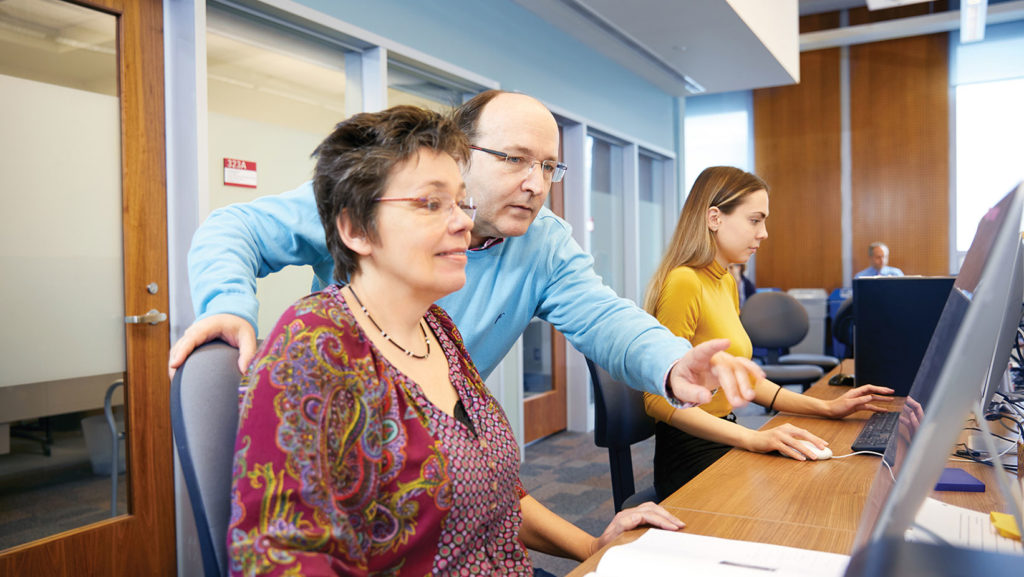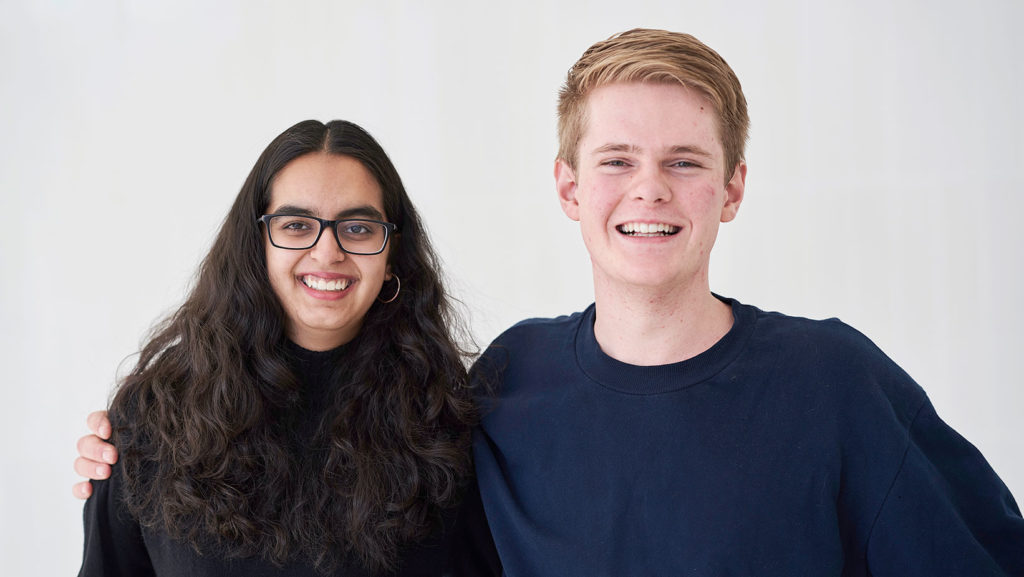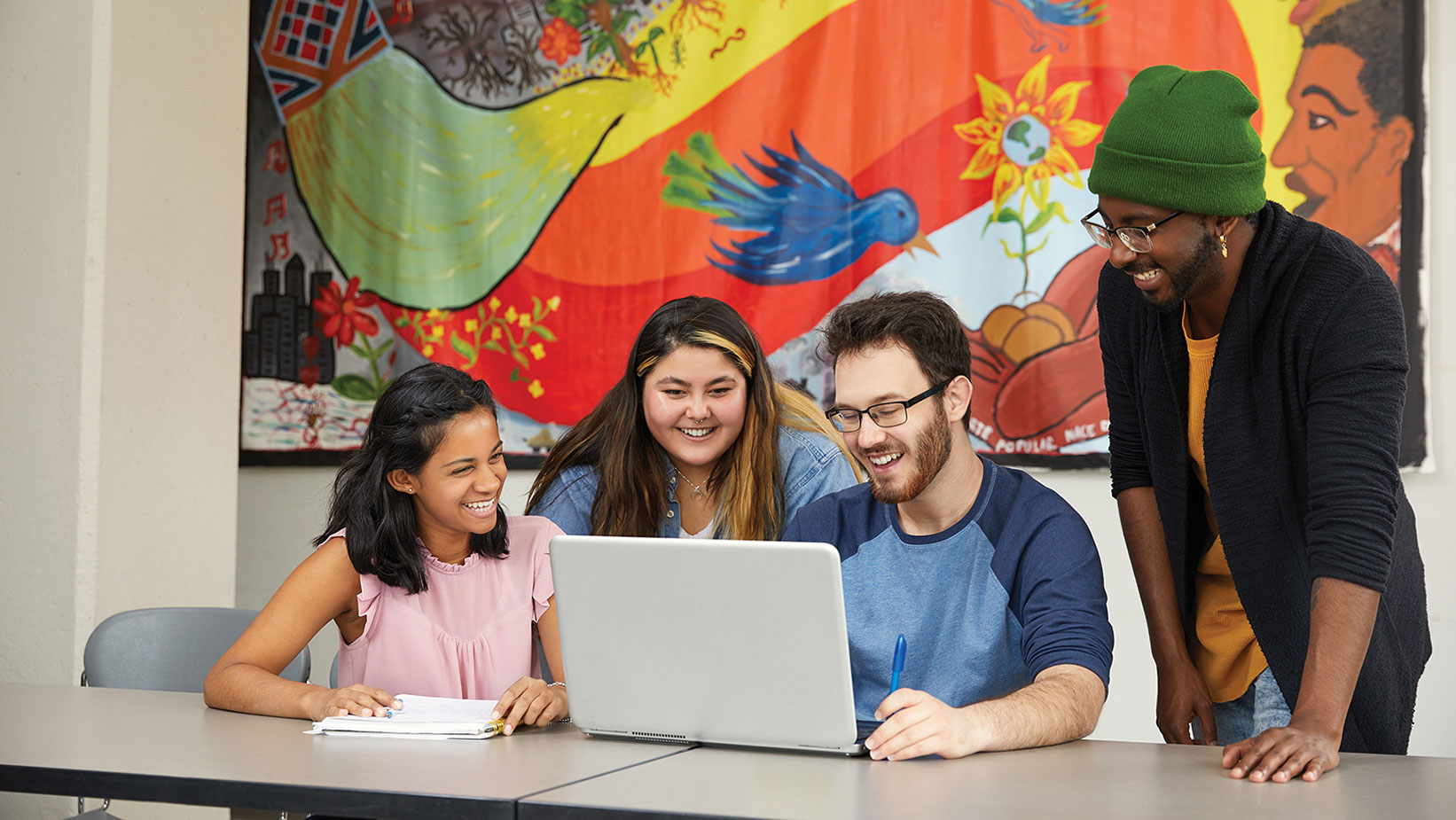A language dies about every two weeks. Make a positive change by taking on this threat to the world’s linguistic heritage. In our close-knit multicultural and multilingual community, you’ll examine the building blocks of languages, how they develop and change, how people learn them and the way regional accents differ. As you explore other fascinating language-based questions, you’ll find lots of opportunities to apply your knowledge both inside and outside the classroom. In small classes, you’ll have close contact with expert linguists and engage with a community passionate about languages.
Skills
- Appreciate language’s complexity and structure at different levels, from sound to meaning.
- Learn about the similarities and differences among language groups and dialects.
- Understand Linguistics as a multidisciplinary field that emphasizes its societal role and impact.
- Demonstrate ethical awareness and cultural sensitivity in linguistic analysis.
- Develop advanced critical thinking about language to make insightful observations, formulate hypotheses, draw scientific conclusions, and contribute to linguistic research and its societal implications.
Careers
As a Linguistics, Language and Society graduate, you will be well-prepared for a diverse range of influential roles. In addition to pursuing graduate studies, you can envision a variety of possible career paths. For some of these, you might want to obtain additional qualifications:
- Speech-language pathologist
- Audiologist
- Interpreter and translator
- Language teacher
- Language specialist for law firms
- Legal content writer/editor
- Language policy analyst
- Forensic document examiner
- Mediation and arbitration specialist
- Language access coordinator
- Public policy analyst
The Linguistics, Language and Society program aspires to produce graduates who are not only equipped with the necessary skills but are also socially responsible. Our graduates are capable of navigating the complexities of language in a diverse and ever-changing world, recognizing the centrality of language to all aspects of human civilization.
Visit the Career Centre for more career options in Linguistics, Language and Society.
Hands-On Experiences
Apply the concepts and theories you’re studying to real-world challenges. Engage in guided practical experiences in the classroom, workplace, community, and abroad.
Here are some opportunities for Linguistics, Language and Society students:
- Discover linguistic diversity in Canada and in Toronto.
- Focus on language endangerment.
- Uncover the pivotal role language plays within the legal context.
- Learn Anishinaabemowin (Ojibwe) through a video game.
- Access a host of campus resources, including the Centre for Research on Language Contact, the Canadian Language Museum, the School of Translation, a French publishing house called Éditions du GREF, and computer-based language tools.
Admission Requirements
- Ontario Secondary School Diploma or equivalent with an average* in the mid to high 70s
- Minimum of six 4U or 4M courses, including 4U English (ENG4U) or FRA4U
- A combination of U and M courses, OACs are accepted
- Proficiency in English OR French
*Average is calculated based on the top six 4U; 4M or DU courses
Check out the full requirements
Student Supports & Programs
Glendon Campus prides itself on being a supportive community that goes the extra mile to ensure you get the help you need. See some of the resources Linguistics, Language and Society students use the most.




Meet Your Professors
You’ll learn from and get to know friendly, high-profile professors, who are leaders in diverse areas of linguistics research.
News & Events
Get involved on campus and in the community to meet fellow students and boost your Glendon experience.





